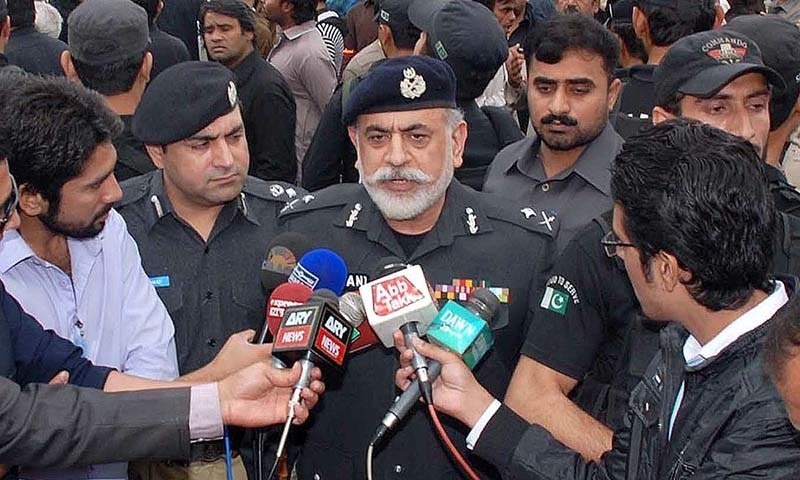Nearly 5,000 cops punished in KP during past two years: report

PESHAWAR: An unprecedented number of police officials of the Khyber Pakhtunkhwa (KP) Police have been awarded punishments on multifarious grounds since October 2013, a document obtained by DawnNews reveals.
It is the first time in Pakistani history that senior level-officers including Deputy Superintendents of Police (DSPs) and acting Superintendents of Police (SPs) have been removed from service on account of misconduct.
Between October 2013 and September 2015, 4,934 police officials have been either removed from service or awarded other punishments on disciplinary grounds, the document shows.
The policemen include 15 DSPs and acting SPs, 44 Inspectors, 328 Sub-Inspectors, 321 Assistant Sub-Inspectors, 385 Head Constables and 3,842 Constables.
Of these officials, 10 DSPs and acting SPs, four Inspectors, 42 SIs, 34 ASIs, 51 HCs and 446 Constables have been removed from service.
All these punishments have been awarded after following due procedure of law.
Whenever a complaint against a police official is brought to the attention of the Inspector General Police (IGP), it is forwarded to three different agencies for verification and subject to an initial fact-finding inquiry.
This procedure is to be completed within 24 hours. If the official is found guilty in the initial inquiry, he is suspended and the initiation of departmental disciplinary proceedings are ordered under the KP Police Efficiency and Discipline Rules.
On completion of these proceedings, the delinquent official, if found guilty, is awarded appropriate punishment in line with the recommendation of the inquiry officer.
According to the KP police spokesman Riaz Khan, the effective internal accountability mechanism is a pre-requisite of bridging the ever-increasing gap between the public and police.
KP's IGP Nasir Khan Durrani has developed an organised Police Access System to address public complaints within the shortest possible time. He also introduced the I-call system, establishing a round-the-clock direct link between himself and the public.
 |
| IGP Durrani with a subordinate- Photo by author |
"Through the efforts of IGP Durrani, the KP Police Efficiency and Discipline rules were amended in 2014, resultantly empowering supervisory officers to initiate disciplinary proceedings against their subordinates and award them punishments," Riaz Khan said.
"This was believed essential for effective and efficacious supervision. Prior to the amendments, a District Police Officer (DPO) was unable to punish officers above the rank of SI."
Similarly, a Sub-Divisional Police Officer (SDPO) had no powers to punish officers of any rank. It rendered SDPOs ineffective while DPOs were reluctant to post Inspectors as SHOs.
Likewise, the Regional Police Officer (RPO) had no means to discipline SDPOs as the power to punish rested with the IGP.
 |
 |
A special appellate board has also been incorporated through these amendments for redressal of grievances of the police officials in a professional, transparent and judicious manner.
"The special appellate board consisting of the IGP and senior officers of the rank Additional IGP and DIG provides an opportunity of second appeal," the KP police spokesman said.
Owing to the constitution of this board, the high courts have also taken exception towards deciding any appeal in favour of applicants, Riaz Khan said.













































